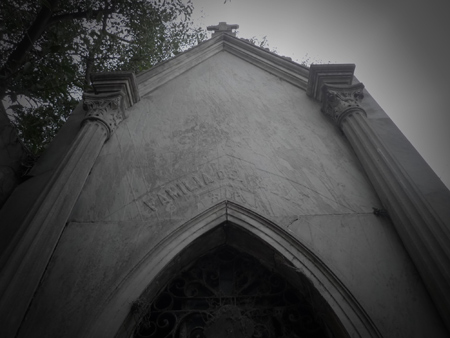
Although neglected today, the Familia del Valle tomb is the final resting place of one of Argentina’s most important sculptors 100 years ago, Victor de Pol. He’s here because in 1910 de Pol married Asimilda del Valle… great-niece of politician Aristóbulo del Valle.
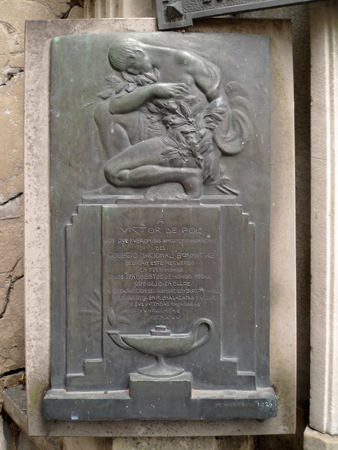
Born in Venice in 1865, Victor de Pol emigrated to Argentina in 1887 at the age of 22. Having already studied art in his home town, Florence & Rome, de Pol won several awards & was recommended personally by his last teacher, Giulio Monteverde… responsible for the crucifixion statue in the cemetery chapel & professor to Dolores “Lola” Mora.
The city of La Plata —newly founded capital of the Provincia de Buenos Aires— hired de Pol to add a little beauty to Pedro Benoit‘s elegant urban design. De Pol is responsible for figures on the Palacio Legislativo, a few reliefs, sculptures of the indigenous people held captive in the Natural History museum (!), busts of 12 important scientists & the saber-toothed tigers guarding the museum entrance:
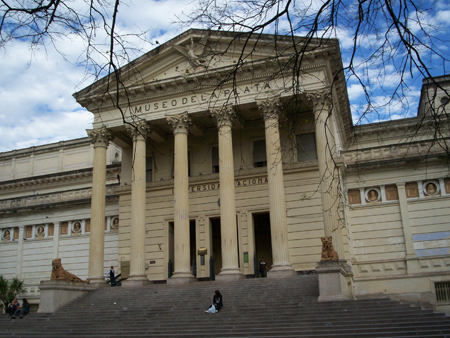
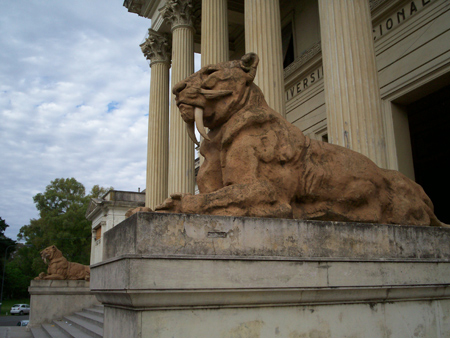
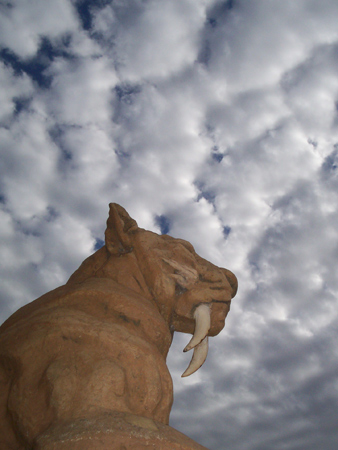
While President Sarmiento was still alive, de Pol had been invited to sculpt a bust —his official image of sorts. So when Sarmiento died in 1888, de Pol was also commissioned to design his tomb in Recoleta Cemetery, topped with a condor:
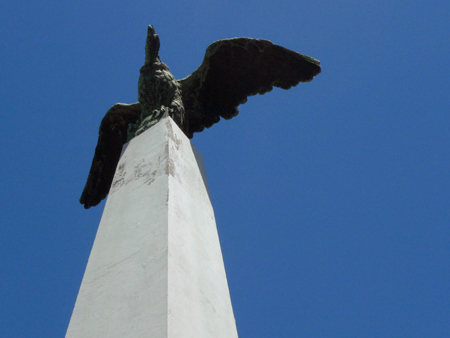
De Pol returned to Buenos Aires after a five-year stay in Europe & opened a studio in what is now known as Galerías Pacífico. From there he designed works to be placed over the entire nation as well as the fantastic tomb of Archbishop León Federico Aneiros, kneeling in prayer in the Catedral Metropolitana:
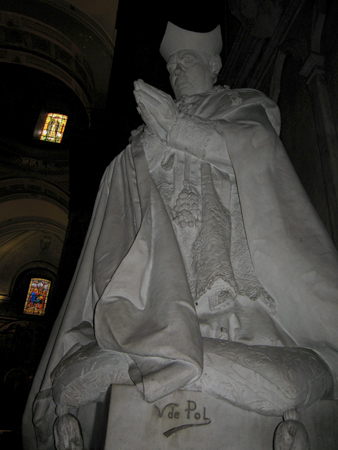
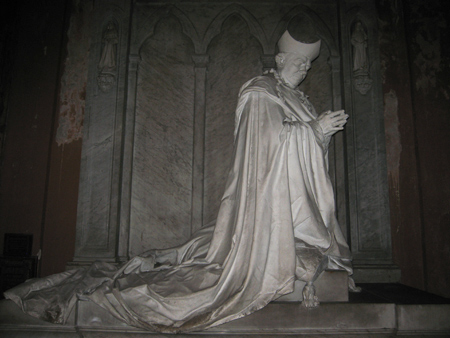
Victor de Pol’s most important work is admired by thousands of people daily, the quadriga placed top & center on the National Congress. Traditionally used by Roman generals when entering a conquered city, the horse-drawn carriage takes on new meaning as Liberty holds the reins. It’s a symbol found everywhere from the Arc de Triomphe to Brandenburg Gate… of course, Buenos Aires needed its own:
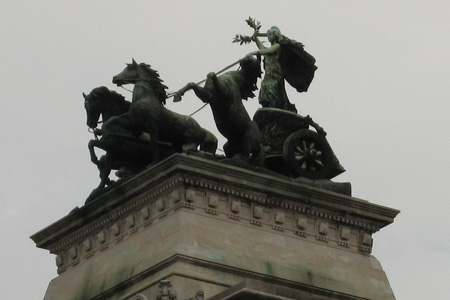
Museo de La Plata photos courtesy of Marcelo Metayer.
felicitaciones por la vuelta ,esperemos tenerte un buen tiempo ,y gracias por seguir con esta interesantisima pagina
Gracias Nicolás… Vamos a seguir por mucho tiempo aca. Saludos!